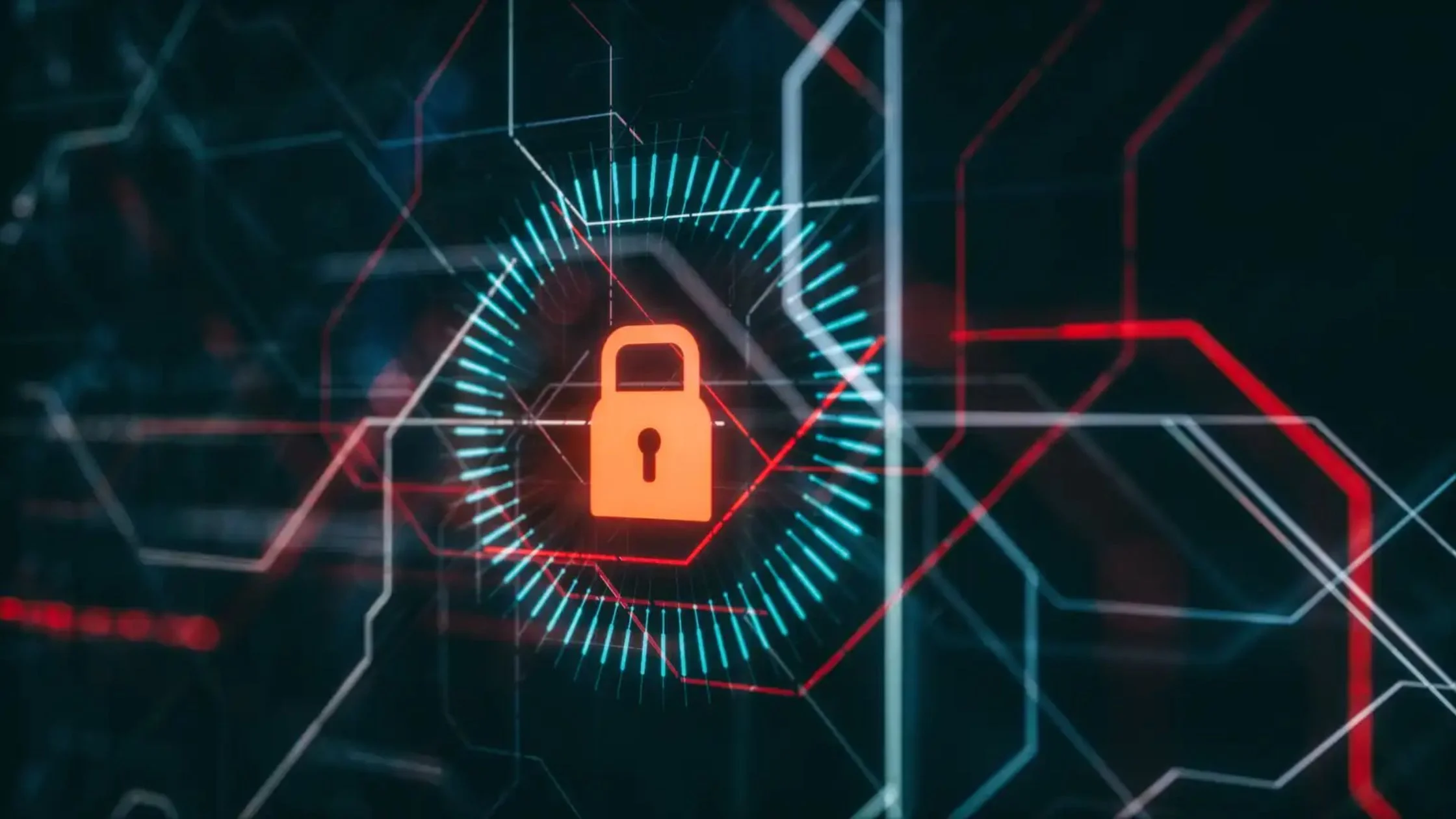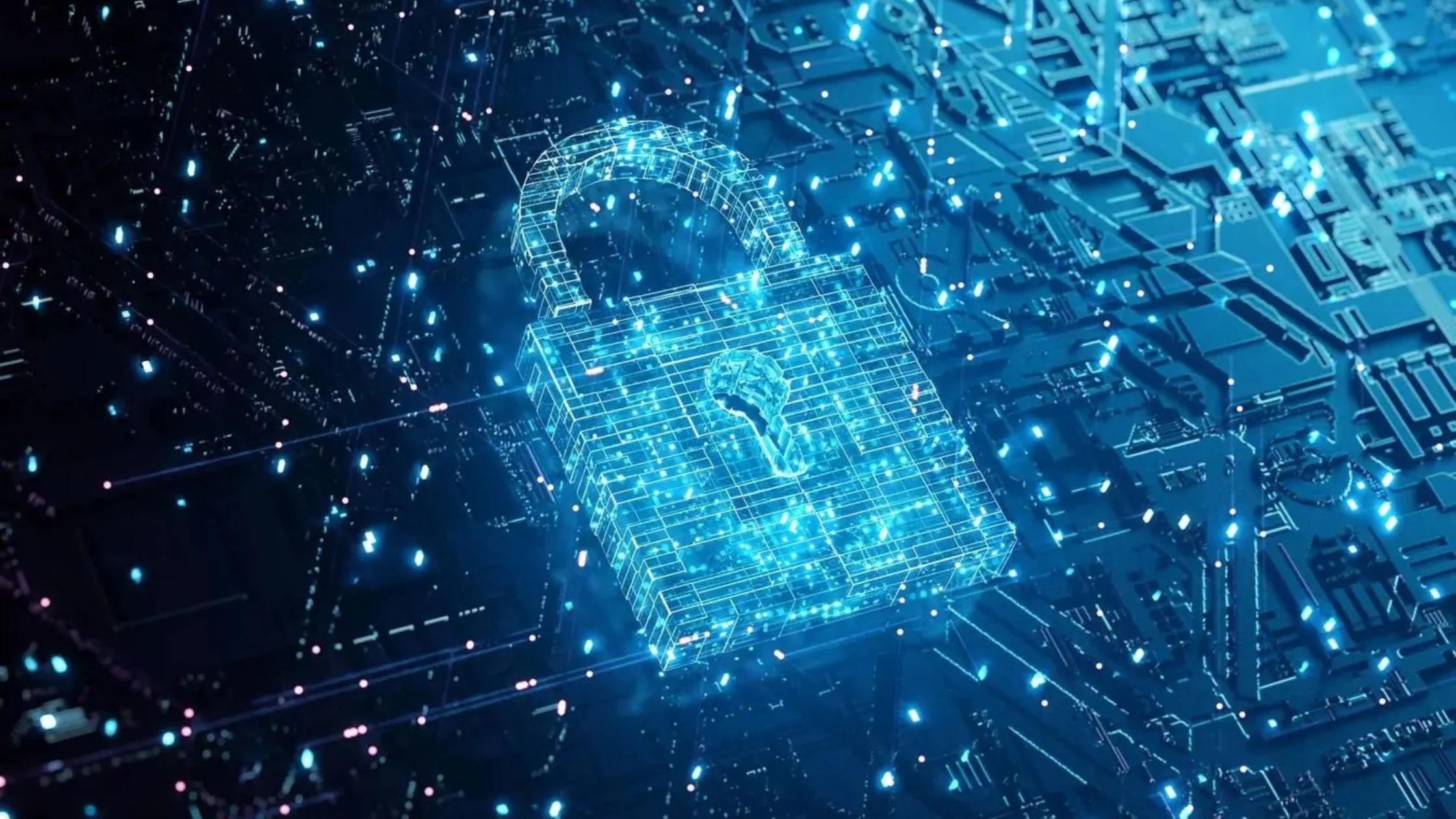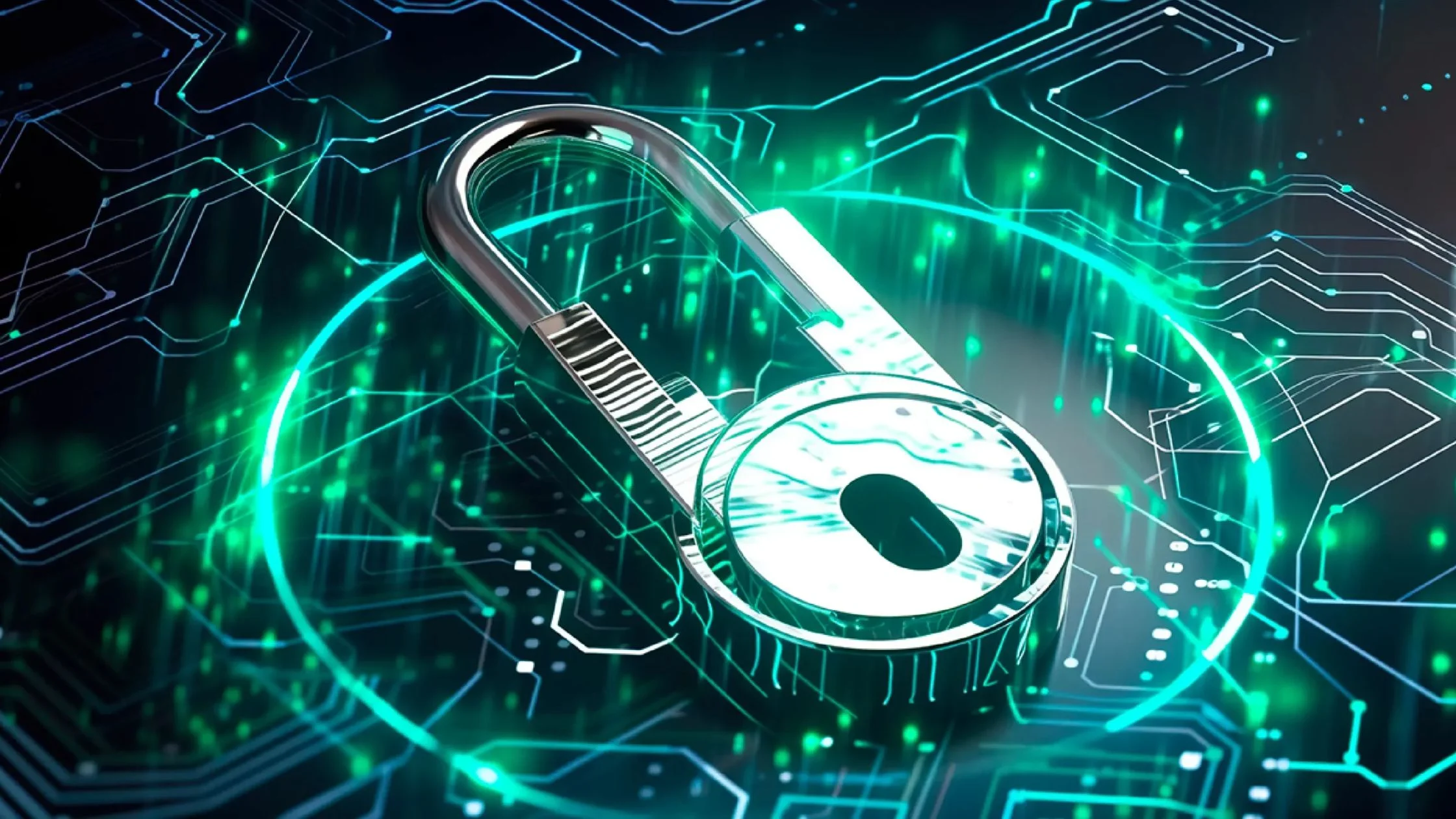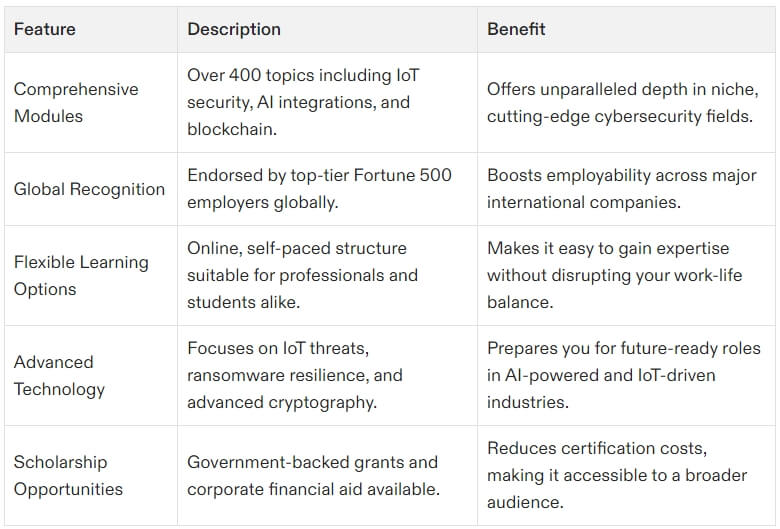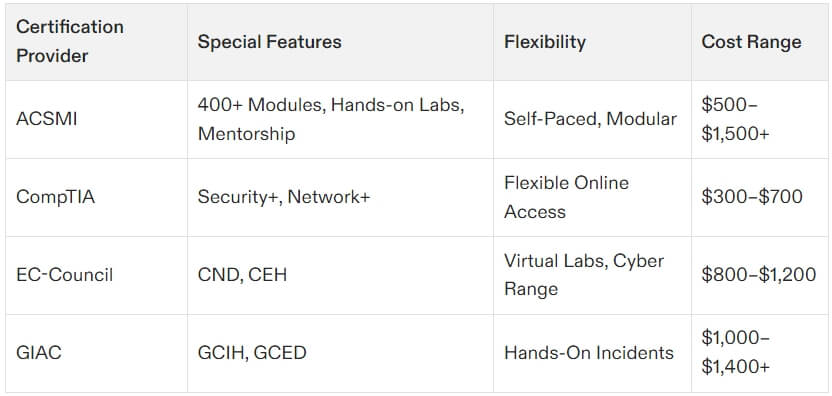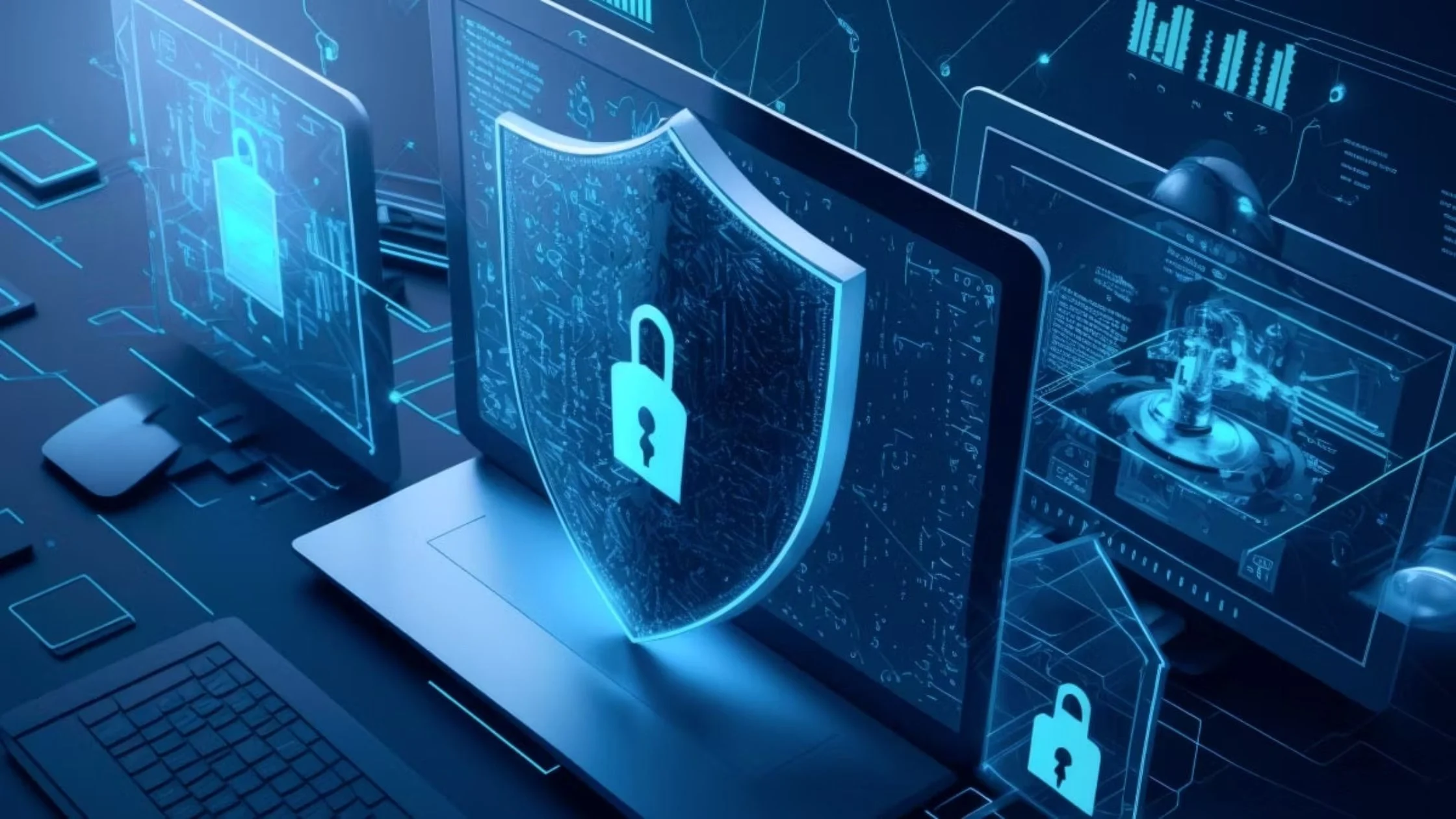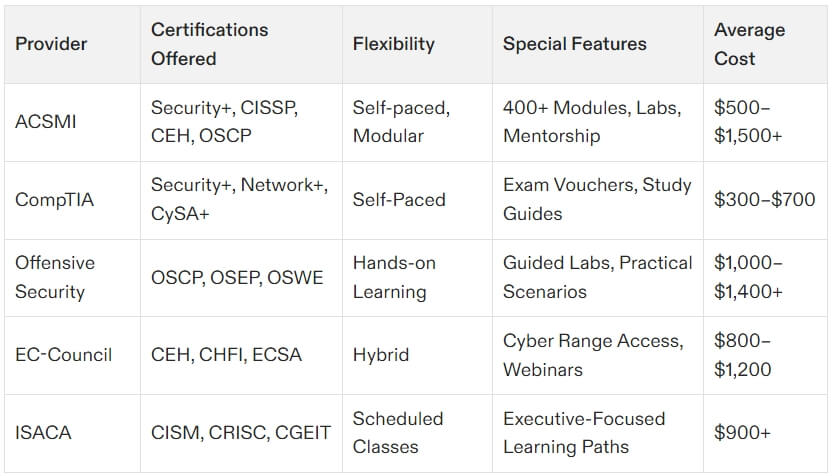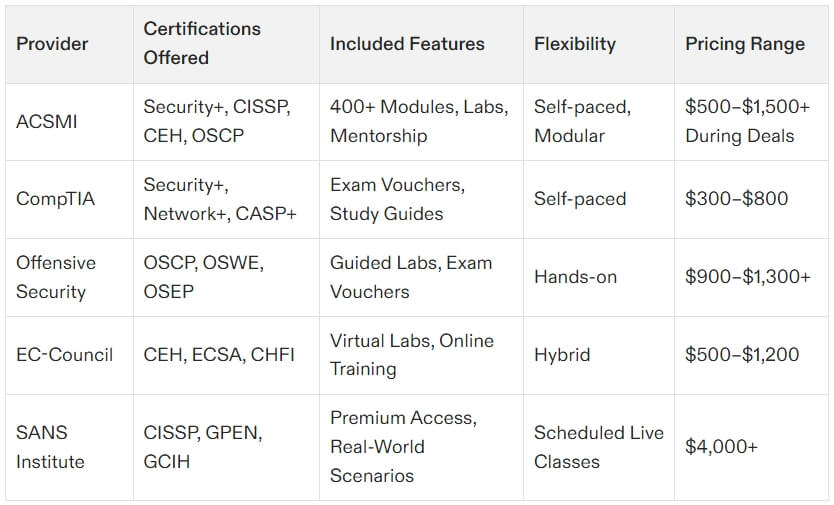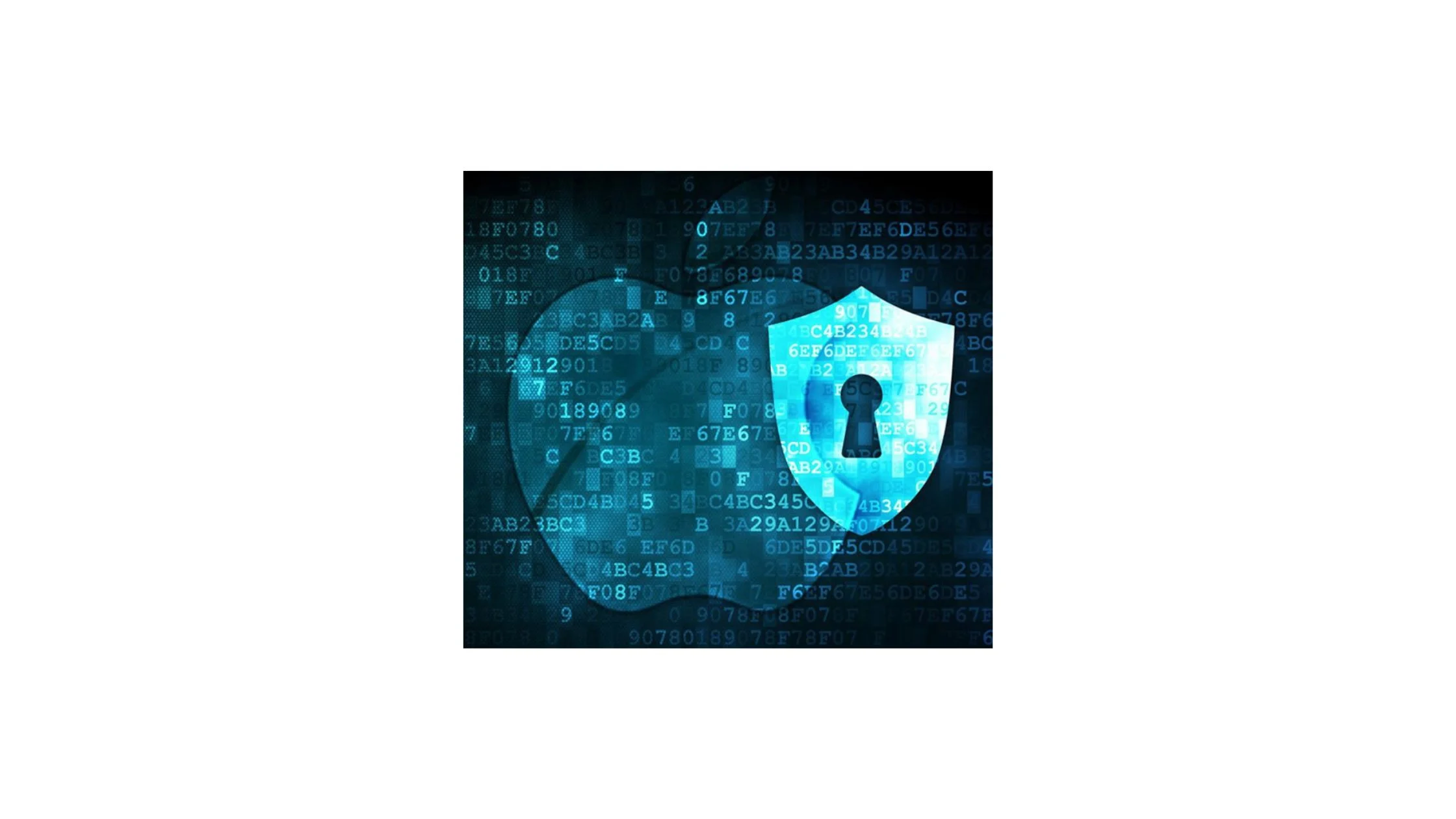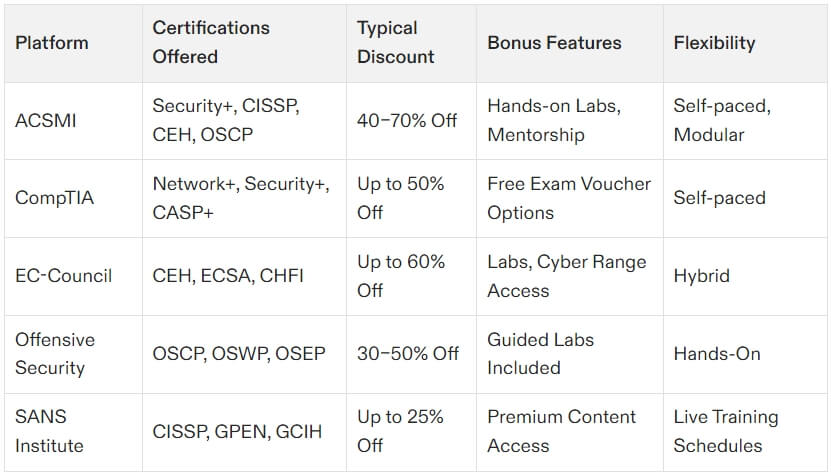Table of Contents
- What Is a Cybersecurity Certification Centre?
- Why Choose a Cybersecurity Certification Centre?
- What Does a Cybersecurity Certification Centre Offer?
- How Cybersecurity Centres Compare to Other Learning Options
- Choosing the Right Cybersecurity Centre
- Career Opportunities with This Cybersecurity Certification
- FAQs About Cybersecurity Certification
- Highlighting ACSMI Certification
- Final Thoughts
The growing landscape of cyber threats has made cybersecurity one of the most sought-after career paths. Whether you’re just stepping into the workforce or are a seasoned IT professional, the demand for advanced skills and certifications continues to rise. And that’s where a cybersecurity certification centre comes into play, offering structured learning programs and hands-on training to prepare you for industry challenges.
But what exactly does a cybersecurity certification centre provide? How does it compare to other forms of learning?
What Is a Cybersecurity Certification Centre?
A cybersecurity certification centre is a specialized institution or platform that offers certifications, training programs, and resources designed to prepare individuals for a career in cybersecurity. These centres equip professionals with the knowledge and skills required to identify, mitigate, and respond to cyber threats effectively.
These centres can be both physical facilities or online platforms and often include an array of resources such as live training sessions, certifications, and simulation labs to prepare individuals for real-world cyber challenges.
Why Choose a Cybersecurity Certification Centre?
Opting for a cybersecurity certification centre has become an increasingly popular choice for IT and security professionals. Here are some key advantages that these centres offer.
1. Comprehensive Learning Resources
Certification centres provide a structured approach to learning, combining theoretical understanding with practical skills. Resources like labs, case studies, and real-time threat simulations ensure you are industry-ready.
2. Industry-Standard Curriculum
These centres often collaborate with cybersecurity experts and globally recognized organizations to design their course content. This ensures that the certifications align with current industry requirements and trends.
3. Access to Expert Mentors
A cybersecurity certification centre offers access to instructors and mentors who bring years of industry experience. Their guidance can fast-track your development in specialized topics.
4. Networking Opportunities
Being part of a certification centre connects you with peers, mentors, and recruiters from top organizations. This collaborative environment opens doors to professional opportunities and knowledge sharing.
5. Certifications with Global Recognition
Most certification centres offer credentials that are accepted worldwide, providing global mobility across a range of organizations and industries.
What Does a Cybersecurity Certification Centre Offer?
A world-class cybersecurity certification centre like ACSMI provides multiple services and programs tailored for learners at every stage of their career. Here’s a breakdown of some essential offerings.
1. Diverse Certification Programs
From entry-level certifications like CompTIA Security+ to advanced programs such as CISSP, centres cater to a variety of career goals. Each certification is carefully mapped to industry needs, ensuring credibility and relevance.
2. Hands-On Labs
Practical exercises using tools like penetration testing kits or encrypted networks simulate real-world challenges. This hands-on experience is critical for successfully transitioning from theoretical knowledge to actionable skills.
3. Modular Learning
Institutions like ACSMI stand out for their modular approach to training, featuring over 400+ modules covering topics from ethical hacking to cloud architecture.
Learn more about ACSMI modular certifications.
4. Training for Certification Exams
Cybersecurity certification centres provide focused preparation for exams, with practice tests, question banks, and mock sessions, ensuring candidates feel confident and prepared.
5. Specialized Tracks
For those looking to niche down, specialized tracks like cloud security, digital forensics, or IT governance are available. These help professionals stand out in competitive job markets.
How Cybersecurity Centres Compare to Other Learning Options
While a cybersecurity certification centre may not be the only choice for learning, it certainly offers some distinct advantages over traditional or independent learning methods.
Certification Centres vs. Self-Paced Online Courses
- Support: Centres provide live instructor support, whereas online courses may lack real-time guidance.
- Practical Experience: Certification centres excel in offering lab-based sessions and interactive training.
- Recognition: Certifications from centres like ACSMI carry more weight compared to general online courses.
Certification Centres vs. University Degrees
- Time Efficiency: Centres provide short-term certification programs, whereas degrees take years to complete.
- Industry Relevance: Institutions keep their curriculum updated with current cybersecurity trends, something university programs often fail to do.
- Cost: Certification centres are often more affordable than university programs.
Choosing the Right Cybersecurity Centre
While many centres claim to offer top-notch certifications, not all are created equal. Choosing the right one is critical to your growth. Here’s what to evaluate.
Accreditation
Ensure the centre is accredited by recognized organizations. Certifications from such centres carry more weight with employers.
Specialization
Look for centres offering certifications that align with your chosen career specialization.
Practical Labs
Hands-on labs and simulations are non-negotiable. They prepare you for real-world scenarios.
Flexibility
If you’re a working professional, choose centres that allow flexible schedules or self-paced learning, like ACSMI’s modular approach.
Check out ACSMI’s flexible modules here.
Career Opportunities with This Cybersecurity Certification
Completing certifications from a well-established cybersecurity certification centre significantly boosts employability. Here are some paths you can explore.
- Entry-Level Roles: SOC Analyst, Network Security Associate
- Specialized Roles: Penetration Tester, Cloud Security Specialist
- Leadership Roles: Information Security Manager, Cybersecurity Architect
FAQs About Cybersecurity Certification
1. What is the purpose of a cybersecurity centre?
A cybersecurity certification centre equips professionals with skills and credentials to tackle industry challenges efficiently.
2. How much does it cost to join a certification centre?
Costs vary but typically range between $500 and $1,500 for comprehensive programs like those offered by ACSMI.
3. Are certifications from these centres recognized globally?
Yes, certifications from reputed centres like ACSMI and Cisco are recognized worldwide.
4. Can I study at this certification online?
Yes, many centres, including ACSMI, offer online modules tailored for remote learners.
5. Do all cybersecurity certification centres offer hands-on training?
Leading centres often include practical labs. Ensure this is part of the curriculum before enrolling.
Highlighting ACSMI Certification
Final Thoughts
A cybersecurity certification centre is more than a stepping stone—it’s the launchpad for a thriving career in one of today’s fastest-growing industries. Whether you’re pursuing an entry-level job or aspiring for senior roles, the right certification centre equips you with industry-recognized credentials and actionable knowledge.
Programs like ACSMI stand out by combining flexibility with depth, catering to unique career paths with their extensive modular system. Start your learning with them today to secure your future in this exciting field.
Begin your ACSMI certification today to take the next big step in cybersecurity!
